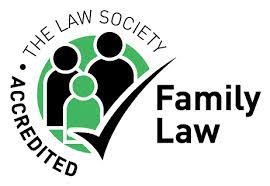As solicitors, we appreciate that sometimes it can seem as though there is a lot of legal jargon when it comes to Wills and Probate. Some of the terms that are commonly used are “Testate” and “Intestate”, and within this article, we will explain what these terms mean and their effects.
Testate
If you are said to have died “Testate”, this means that you died with a valid Will in place. As you may be aware, a Will is a legal document that sets out your wishes on your death. In your Will you may appoint executors to administer your estate, appoint guardians for your children (and even make provisions for pets!), together with outlining who you wish to inherit your estate.
It is always recommended that you have a valid Will in place, as it ensures that your wishes are carried out after your death, and it will also give you a chance to discuss with your solicitor about inheritance tax implications for your estate. The Office for Budget Responsibility forecasts that the share of deaths resulting in the payment of inheritance tax will rise to 6.3 per cent by 2028–29, the highest level since the 1970s. That proportion was as low as 2.7 per cent in 2009/10. Revenue from inheritance tax and its predecessors has increased over time in real terms, from around £2billion in 1980/81, to £7.5billion in 2023/24, and will reach almost £9billion by 2028/29 (all amounts in 23/24 prices)[1]. This increase of estates being charged with IHT provides a very good example as to why you should seek legal advice so that you can understand the tax position of your estate.
If you have died testate, your executors may need to apply for a Grant of Probate. A Grant of Probate is essentially a permission slip that allows your appointed executors in your Will to close any bank accounts you may have, sell property, or deal with any potential shares you may have. The current waiting list for a Grant of Probate is around 16 weeks once the application has been received.
Intestate
When someone has died “Intestate”, this means that you have died without having a valid Will in place. You may now be wondering “How will my estate be administered if I do not have a Will?”. When this occurs, the Rules of Intestacy are applied. These rules provide a ‘pecking order’ as to who inherits your estate.
The rules begin with a spouse or civil partner getting everything, and if you have any children, then your spouse or civil partner will receive a statutory legacy of £322,000 of your estate, and the remainder will be divided into two parts with one part going to your children to split equally between themselves, and the other half going to your spouse or civil partner. If you do not have either a spouse/civil partner or any children, then your Estate goes to your parents, siblings, half-siblings, grandparents, aunt or uncles, cousins, half-aunts and uncles, and failing all of the above, your entire estate would go to the Crown. This obviously is not the ideal situation, as your friends and family may not inherit from your estate like you may wish for them to, if you do not have a valid Will in place.
When applying to the Probate Registry, instead of a Grant of Probate, you would apply for a Grant of Letters of Administration. This document holds the same power as a Grant of Probate and would allow you to do the same things, however, Letters of Administration may take longer to process which would significantly hold up the Estate administration.
Oliver & Co’s legal experts are on hand should you require assistance with a Will. Whether you need to put one in place, update an existing Will or simply have some questions you need advice on, please call our office on 01244 312306.
[1] IHT Receipts 7.2% higher than last year – HMRC, IHT receipts 7.2% higher than last year – HMRC | Today’s Wills and Probate (todayswillsandprobate.co.uk), Author Katie Johnson, Published 24th May 2024, Accessed 24th June 2024













